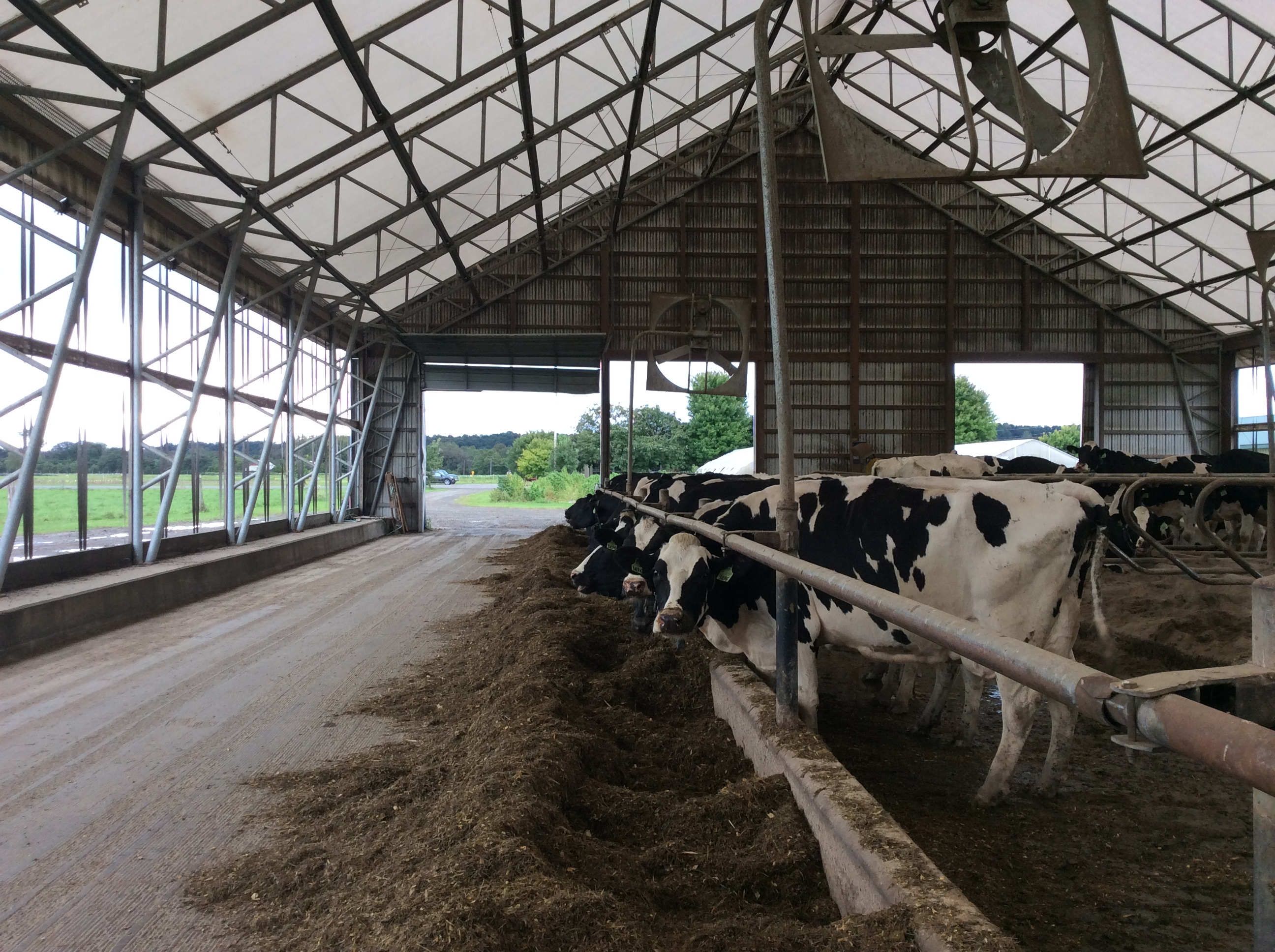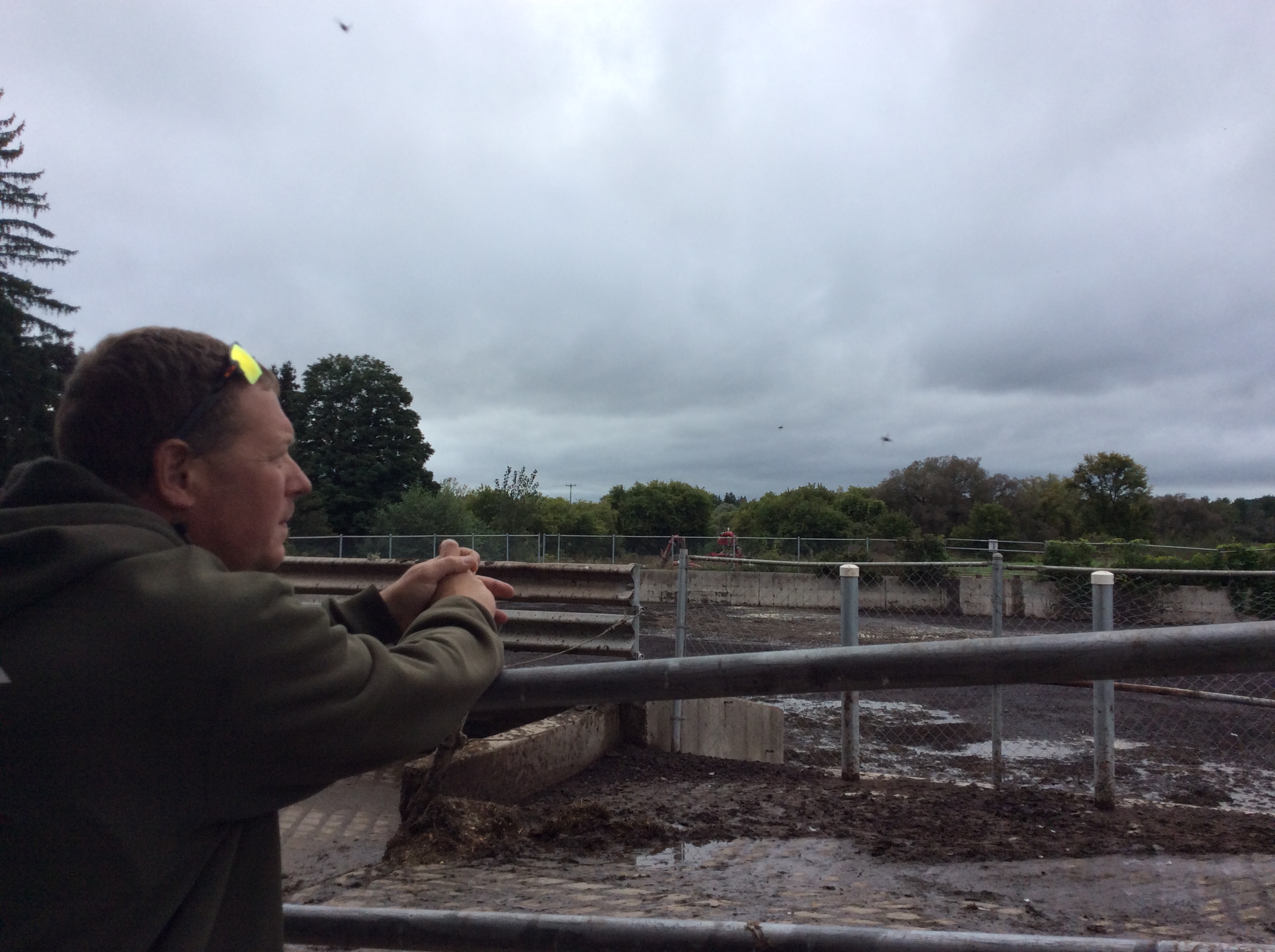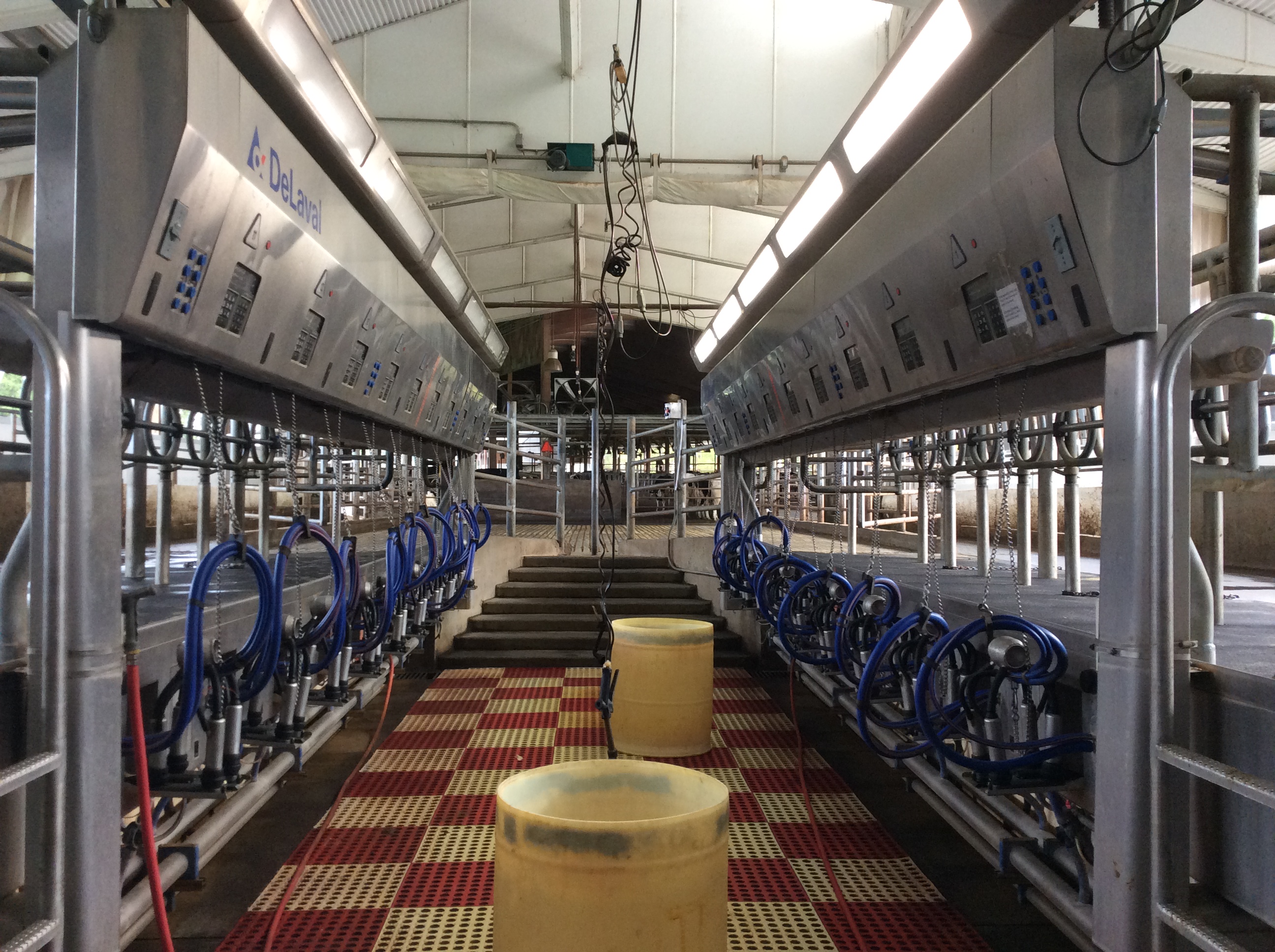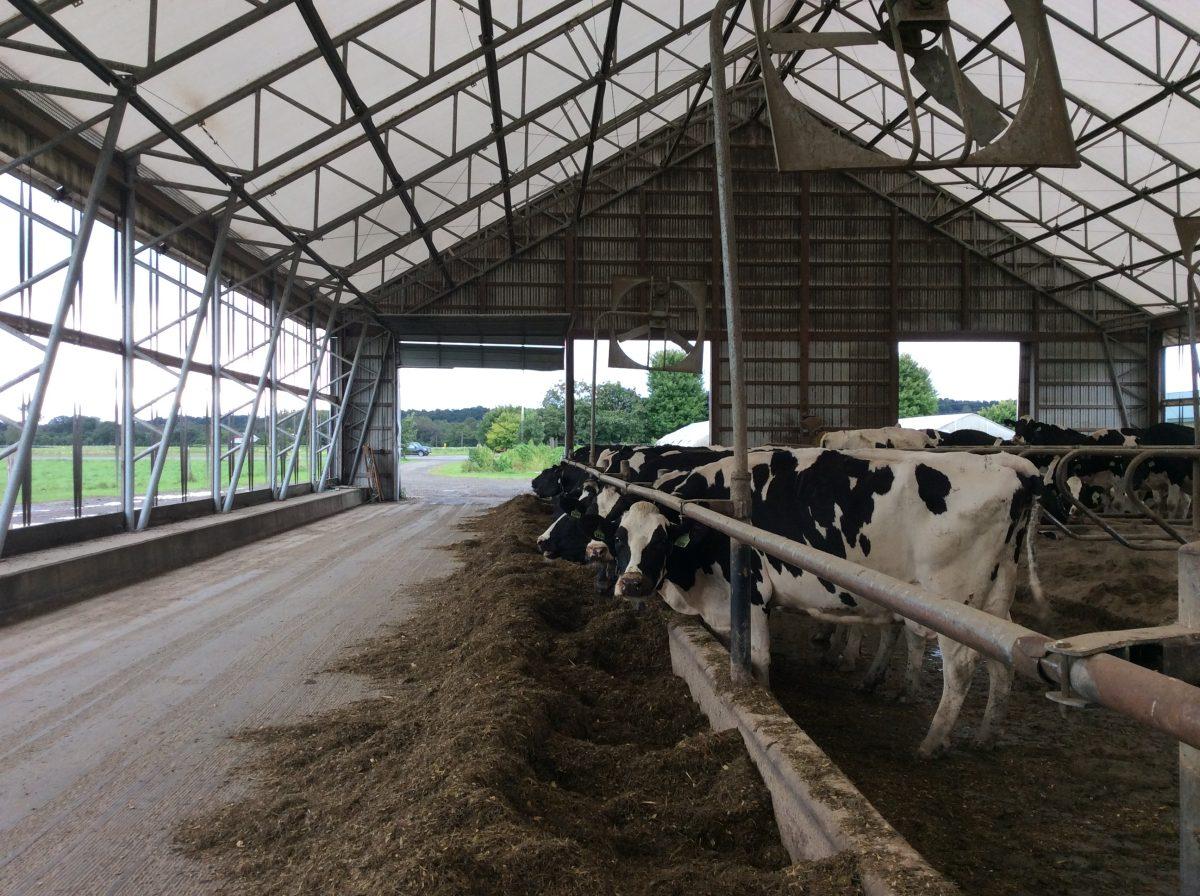
Trudging through post-rain mud in a field off of Fall Creek Road in Freeville, a barn appears with around 70 female cows lying in sand beds and awaiting the milking process. On the other end of the barn a large concrete pit with a green line along the walls contains manure from the entire farm of 150 dairy cows.
The Jerry Dell Farms consists of four dairy barns, the Fall Creek location being the smallest. However, not all of the farms have manure pits, which makes it difficult to dispose of the waste and prevent runoff. Jeremy Sherman, of Jerry Dell Farms, points out the strategies of manure disposal making sure it never crosses the green line in the pit.
“We have six months of storage, because up here winters are six months long sometimes and you can’t get it out on the ground. There’s rules for spreading manure – if you know there’s a big rain event, you can’t go out and spread it or if it’s going to warm up a lot and there’s a big melt during the winter time, you can’t go out. They’re even passing laws for no winter spreading,” said Sherman.

In the Cayuga Lake area, there are over 20 dairy farms functioning as contained animal farming operations, known as CAFOs, that fall under state regulation. In February of 2018, the Department of Environmental Conservation, DEC, passed a regulation that required CAFOs to have six-month manure storages. Whether on-site or collected by waste management, the purpose is to reduce the amount of runoff into local streams and lakes.
Toxics Targeting, an environmental group, has actively tracked the manure spills in the Cayuga Lake area. Walter Hang, president of Toxics Targeting, said that those leakages are connected to the problematic algal blooms occurring near Ithaca Falls. According to a 2006 study published by researchers at the Center for Marine Science at the University of North Carolina Wilmington, it was found that manure runoff stimulates algae growth.
“We looked at those available data from the Department of Environmental Conservation and clearly there’s a huge problem. We do this because we know that watersheds, these non-point sources of pollution, are not properly regulated because many of the water bodies have these problems,” Hang said.
Hang emphasizes that most of the problems can be solved through government policy. Through letters and calling, he has put pressure on local government and New York Governor Andrew Cuomo to take on this issue.

Staff at the Cornell Teaching Dairy Barn educate not only students, but also visitors unaware of dairy practices and the effects on the environment. The barn uses a sand separator to isolate the manure from the sand bedding and send it off-site to turn that manure into power for Ithaca. This is a unique approach.
“In New York state the vast majority of dairy operations are also farming operations and they have a land base associated with dairy and they’re growing crops to feed those cows,” said Dr. Blake Nguyen, director of the Cornell barn.
Dr. Nguyen said he agrees that more regulation in the form of continuous observation and testing is key to maintain control of manure spills. There are incentives for farmers to keep as much manure on their land as possible. The extreme weather changes that cause seasonal temperatures to fluctuate, will only increase the problem. Disposals will need to happen more frequently and at a greater cost for the farmer to avoid excessive runoff. Every small effort to make farming greener helps.
“Every year there’s more done to try to recycle nutrients as responsibly as possible on farming operations. And that means increasing soil sampling, increasing things like buffer zones and other best management practices to try to retain the soil to prevent erosion and retain nutrients in the field as opposed to letting it runoff,” Dr. Nguyen said.
Jerry Dell Farms and the Cornell Teaching Dairy Barn use different methods in disposing or using the manure, both make sure that there is as little runoff as possible.
Despite the advocacy work done by Hang and many others in the area, Governor Cuomo and local administrators have not acted on the growing issue. They emphasize that the best management practices, implemented by CAFOs, rely on the farmer to dispose of their own manure.







